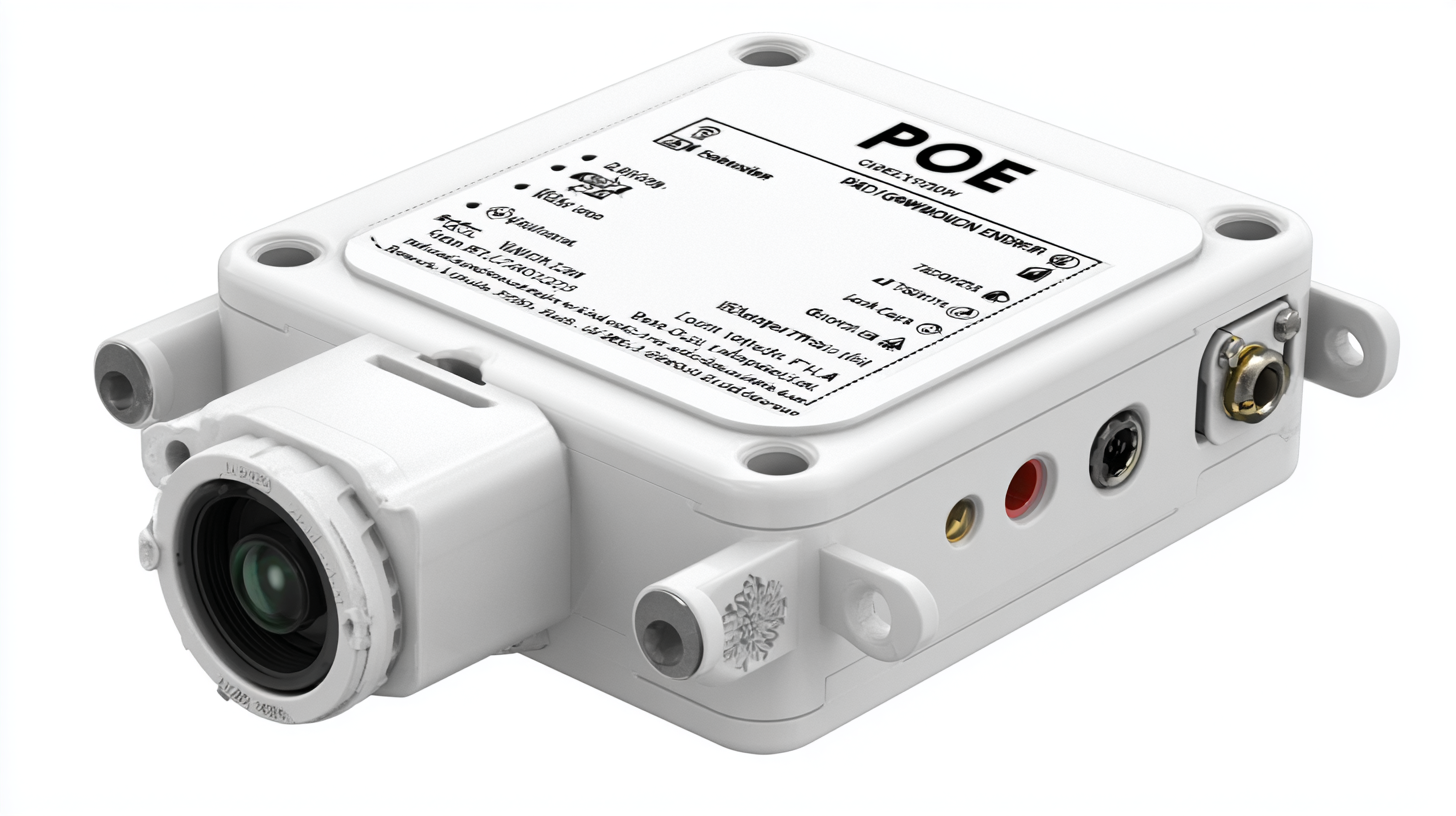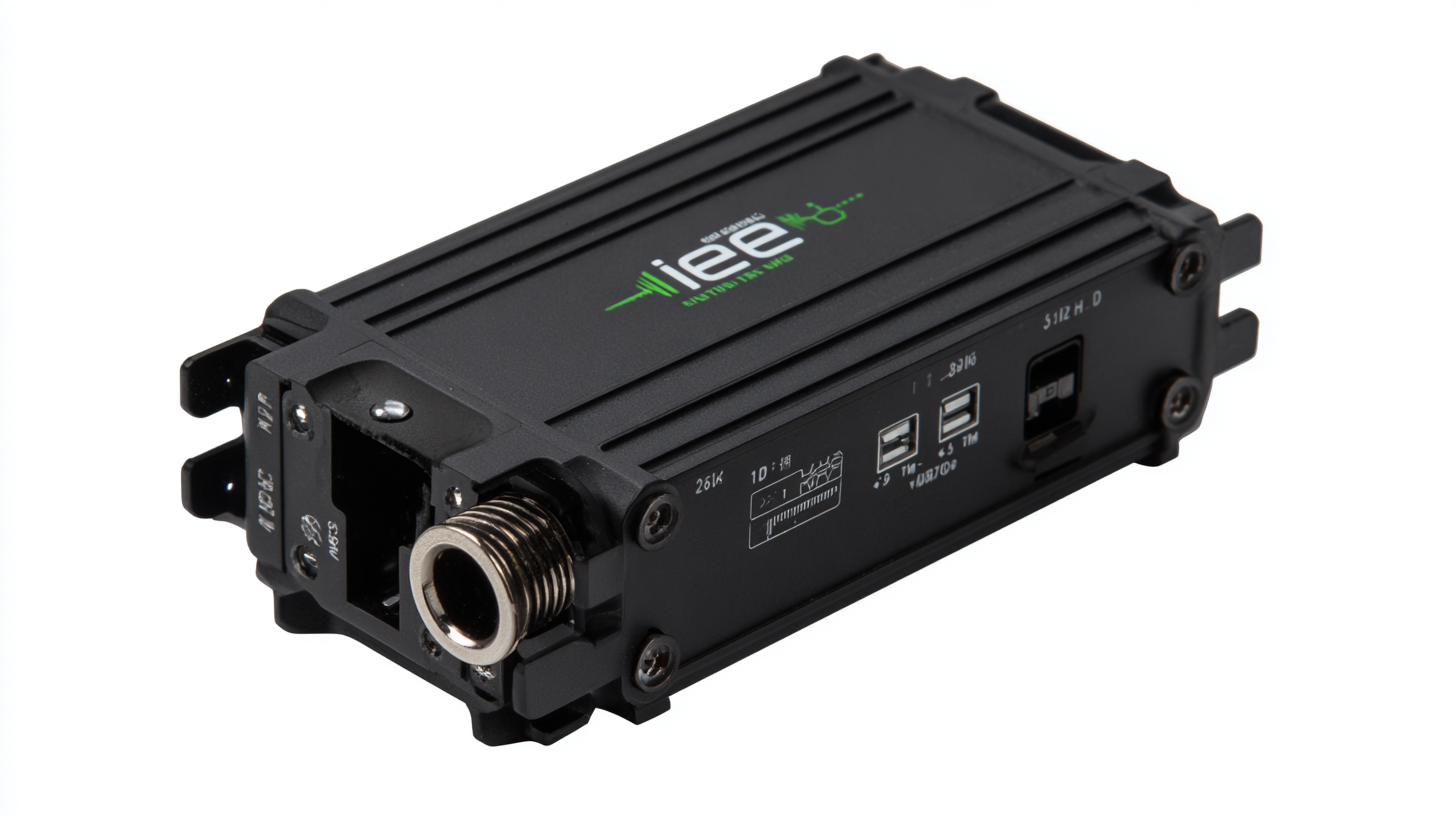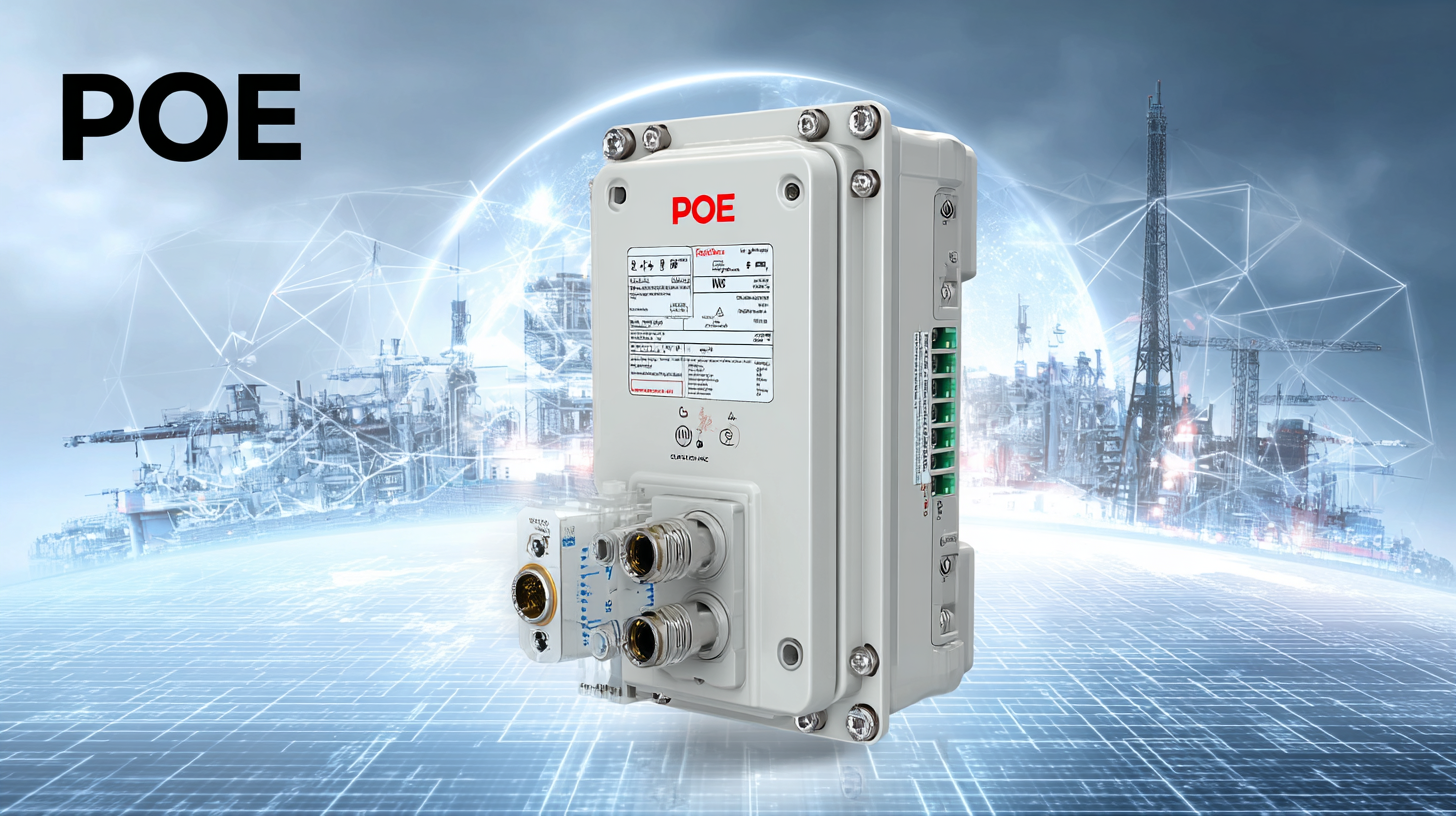
- [email protected]
- Mon - Sat at 7:00AM to 9:00PM
Leave Your Message

In today's interconnected world, ensuring seamless and reliable network connectivity has become a top priority for businesses and individuals alike. One of the most efficient solutions for overcoming the challenges posed by long-distance data transmission and harsh environmental conditions is the IP67 PoE extender. This cutting-edge technology not only extends the reach of your network but also offers superior protection against dust and water, making it ideal for outdoor installations and industrial settings.
As global buyers seek to enhance their network capabilities, understanding the advantages of the best IP67 PoE extenders becomes crucial. In this blog, we will explore top strategies that can help maximize the benefits of these extenders, ensuring that you make informed decisions that align with your connectivity needs.
Join us as we unlock the potential of the IP67 PoE extender and pave the way for a more connected future.

In today’s rapidly advancing technology landscape, the demand for reliable outdoor installations continues to surge. This is where IP67 PoE extenders come into play, providing a robust solution for powering and networking devices in challenging environments. One of the key benefits of these extenders is their superior protection against dust and water ingress, making them ideal for outdoor applications. Whether it's for surveillance cameras, wireless access points, or other critical devices, IP67 PoE extenders ensure uninterrupted performance regardless of weather conditions.
Another significant advantage of IP67 PoE extenders is their ability to streamline the installation process. By combining power and data transmission into a single cable, they eliminate the need for separate power sources, reducing clutter and simplifying setup. Additionally, these extenders can significantly extend the range of your network, allowing devices to be placed further from switches or routers without sacrificing connection quality. For global buyers, investing in IP67 PoE extenders not only enhances operational efficiency but also provides peace of mind, knowing that their outdoor installations are equipped to withstand the elements while delivering reliable performance.
When selecting a reliable IP67 PoE extender, it’s essential to consider several key features that ensure optimal performance and durability in diverse environments. First and foremost, the unit should boast robust waterproof and dustproof capabilities, as indicated by its IP67 rating. This rating guarantees protection against the intrusion of water and dust, making it ideal for outdoor installations where exposure to harsh weather conditions is a concern.
Additionally, look for extenders with high data transmission speeds and power output capabilities. A quality IP67 PoE extender should support at least 802.3af or 802.3at PoE standards, allowing it to power devices like IP cameras and wireless access points efficiently. Compatibility with various voltage ranges is also crucial, as it ensures that the extender can integrate smoothly with existing infrastructure. Lastly, a user-friendly design that includes easy installation features and robust mounting options can significantly aid in the deployment process, saving time and resources while ensuring reliable operation.

When setting up an IP67 PoE extender, efficiency and proper installation are crucial for maximizing its performance. According to the latest report from the International IEEE 802.3 standards committee, PoE technology can deliver up to 90 watts of power, enabling devices to function optimally in harsh environments. The IP67 rating signifies that the extender is dust-tight and can withstand immersion in water, making it ideal for outdoor installations.
To begin the installation, ensure that all components are compatible with your PoE extender. Utilizing high-quality cables can significantly reduce power loss, as indicated by a study from Gartner, which notes that improper cabling can result in up to a 20% decrease in efficiency. Start by connecting your PoE injector to the extender, then extend your network by linking it to the cameras or access points. Regularly check connections and settings to ensure they meet the standards necessary for optimal operation. Such diligence in installation can prevent issues and leverage the full capabilities of the IP67 PoE extender, ultimately enhancing the reliability of your network infrastructure.
This bar chart illustrates the performance factors of IP67 PoE extenders, focusing on key metrics such as range, transmission speed, water resistance rating, temperature resistance, and ease of installation. Each of these factors is essential for global buyers when choosing an extender that meets their specific needs.
When it comes to selecting the best IP67 PoE extender, understanding key brand differences is essential for global buyers seeking
reliability and performance.
IP67 rating indicates that the device is dust-tight and protected against immersion in water, making it ideal for outdoor installations and challenging environments.
Brands like TP-Link, Ubiquiti, and MikroTik are at the forefront,
each offering unique features that cater to various needs.
TP-Link's extenders are known for their user-friendly interfaces and competitive pricing, making them a popular choice for small
to medium-sized businesses. Ubiquiti, on the other hand, boasts robust performance and scalability, appealing to enterprises
that require extensive networking solutions. MikroTik is recognized for its versatility and advanced configuration options,
attracting tech-savvy users who need customized setups.
By comparing these brands, buyers can identify which IP67 PoE extender best suits their operational requirements and budget constraints.
When utilizing IP67 PoE extenders, users may encounter common troubleshooting issues that can disrupt their connectivity. One prevalent problem is signal degradation, which can occur due to distance or environmental factors. Extended cabling, running longer than the recommended limits, may lead to loss of power or data. To combat this, ensure your installation follows the standards and consider using lower resistance cables to maintain quality over longer distances.

Another challenge is moisture ingress, particularly in outdoor setups. While IP67 ratings denote a high level of protection against dust and water, improper installation can still lead to vulnerabilities. To prevent moisture-related issues, regularly inspect connectors and sealants, ensuring that all entry points are secure. Employing weatherproof enclosures further enhances durability against environmental conditions.
Lastly, power fluctuation can be problematic for PoE extenders. Sudden changes in power supply may affect device performance. It's advisable to invest in a quality surge protector to shield your devices from overwhelming power surges. Additionally, always check your power sources and verify that your extenders are matched correctly to the intended load to ensure optimal operation.